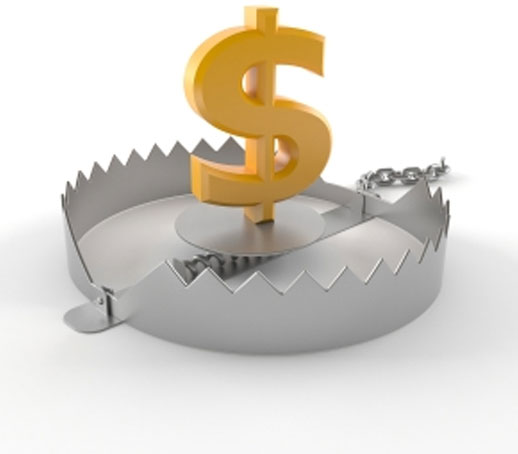Rich vs. Famous - Blue Ocean HPA
Accountability | Advisory | Coaching | Consulting

If you’re like most business owners, you’re striving for an increase in your annual sales. It’s natural to want your company to be bigger because that’s what everyone around us seems to celebrate.
Magazines profile the fastest growing companies, industry associations celebrate their largest members, and bigger seems to be better in the eyes of just about every business pundit with a microphone.
But growth can come at a steep price and can even detract from your ability to build your personal wealth.
The Contrasting Exits of Michael Arrington
For example, let’s take a look at an entrepreneur named Michael Arrington. Arrington started Achex in 1999. It helped facilitate payments in the early days of the internet, and Arrington was focused on growing it. He accepted two rounds of outside capital to fund the company’s expansion.
Achex was ultimately sold to First Data Corporation for $32 million in 2001. Unfortunately, because Arrington had been focused on growth above all else, he had not only raised two rounds of financing but also reduced his personal stake in the company down to next to nothing. As he told Business Insider, "When I started my first company, Achex, we raised $18 million in venture capital in 2000 from DFJ. The company later sold for $32 million, but due to a 2x liquidity preference (common in those days), the founders essentially got nothing, just a few hundred thousand dollars to not block the deal."
Arrington then went on to start the technology blogging website TechCrunch in 2005. This time Arrington wanted to grow the business, but not at the expense of his equity. Instead, they grew the company within their means and funded the business largely out of cash flow. Arrington still owned 80% of the company, according to Business Insider, when he sold it for approximately $30 million.
Apparently Arrington had learned his lesson—growth is good, but not at the expense of all else.
The Alternative to Growth at All Costs
The alternative to focusing on sales growth as your primary objective is to focus on the value of your equity within your company. Growth will have a positive impact on your company’s value, but your growth rate is only one of the eight drivers that impact what your company is worth. As you build your business, you will be faced with many forks in the road where growth may come at the expense of both your company’s value, and your personal wealth.
For example:
You may have to dilute your personal stake in the company by taking on outside capital. Depending on the return your investors are looking for, and the performance of your company after you take on outside investors, your smaller slice of the larger pie may be worth less than a larger slice of a smaller pie.
Cross selling your largest customer more products and services may be a relatively easy way to grow your top line, but if they already represent more than 15% of your sales, the extra revenue may dilute the value of your company because acquirers discount companies with too much customer concentration.
Giving lazy customers 90 days to pay may keep them buying, but those charitable payment terms may detract from the value of your business because an acquirer will have to fund your working capital.
You could choose to invest your sales and marketing resources into winning a big, one-time project that would boost your sales but this may not boost the value of your business, which may be more positively impacted by a smaller amount of recurring revenue.
Growth is important and how big your company can get is one of the eight drivers of your company’s value. But growth is only one of eight factors—to learn about the other seven, contact us today!